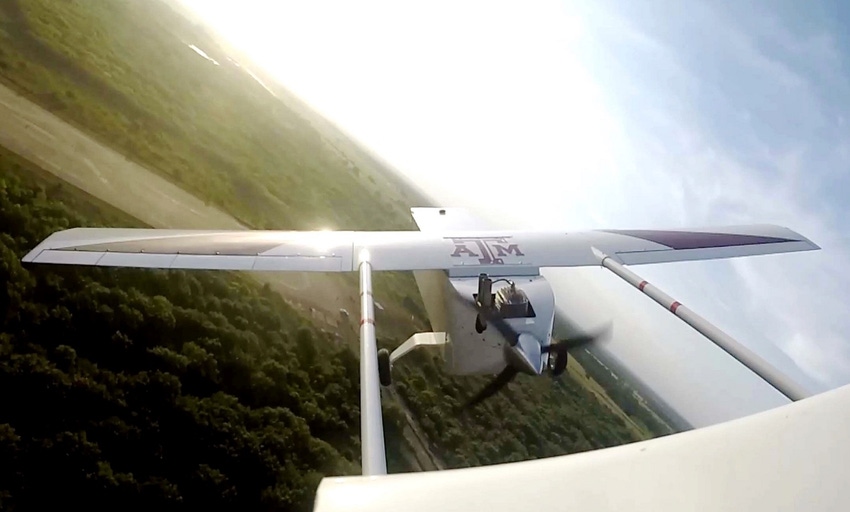July 28, 2018

High-tech devices in agriculture such as unmanned aerial vehicles and sensors are leading to immense growth in data collection and deployment, and a Houston conference Aug. 20-21 will feature scholars and industry experts discussing future applications in all aspects of production agriculture.
The invitation-only conference, Identifying Obstacles to Applying Big Data in Agriculture, will be held at the Houston Airport Marriott at George Bush Intercontinental Airport. It is sponsored by Texas A&M AgriLife Research and the U.S. Department of Agriculture-National Institute of Food and Agriculture.
“We have had advanced technologies like GPS in agriculture for over 20 years, but only a small handful of these technologies have made a significant impact,” said Dr. Alex Thomasson, conference coordinator and Texas A&M AgriLife Research engineer in College Station. “We want to cast a vision for the practical use of big data in production agriculture so we can take advantage of the current wave of attendant technologies like the so-called Internet of Things, artificial intelligence, wireless communications, the cloud, etc.
“This conference will feature discussion with key business leaders and academics involved in a broad range of disciplines within big data and precision agriculture. We will have introductory talks on agricultural big data issues to set the stage for breakout meetings to illuminate and address specific, common, important obstacles to applying big data and potential means to overcome them.”
Subject areas to be covered include analytics, agronomy, agricultural economics, crop physiology and modeling, agricultural machinery, cloud software, genetics and breeding, data ownership, validity and bandwidth capabilities.
Thomasson said conference attendees will be charged with the following:
Identify some common scenarios in which big data have near-term potential to directly bring major improvements in profitability and/or environmental risk mitigation in production agriculture.
Create a prioritized list of obstacles to using big data in these scenarios.
Determine potential means to overcome the obstacles identified.
Generate a comprehensive conference report of compelling big data solutions for production agriculture.
Featured speakers include:
Dr. Seth Murray, Texas A&M AgriLife Research scientist and professor and Eugene Butler Endowed Chair in Agricultural Biotechnology Department of Soil and Crop Sciences, Texas A&M University, College Station. Murray’s research program focuses on new approaches in high throughput field phenotyping, including unmanned aerial vehicles, i.e. drones; quantitative genetic discovery; gene to phene data analytics and applied maize (corn) breeding in Texas; and perenniality in maize and sorghum.
Dr. James Lowenberg-DeBoer, Elizabeth Creak Chair in Agri-Tech Applied Economics at Harper Adams University, Newport, Shropshire, UK, and co-editor of the journal Precision Agriculture. Lowenberg-DeBoer’s research focuses on the economics of agricultural technology, especially precision agriculture and agricultural robotics.
Dr. Gerrit Hoogenboom, Institute for Sustainable Food Systems and faculty member of the Department of Agricultural and Biological Engineering at the University of Florida. Prior to joining the University of Florida, Hoogenboom was the director of the AgWeatherNet Program and professor of agrometeorology at Washington State University. He has over 25 years of experience in the development and application of dynamic crop simulation models and decision support systems.
Dr. Raj Khosla, Robert Gardner Professor of Precision Agriculture at Colorado State University and global authority on precision agriculture. Khosla has generated many discoveries in precision agriculture, the most widely recognized an innovative technique of quantifying variability of spatially diverse soils using satellite based remote-sensing to create management zones. His main research focus has been on management of in-field soil and crop variability using geospatial technologies for precision management of crop inputs on large and small-scale farming systems around the world.
Dr. Craig Stevenson, data scientist/modeler with Bayer Crop Science, Digital Farming.
For more, visit https://www.agbigdataobstacles.com/ .
About the Author(s)
You May Also Like




